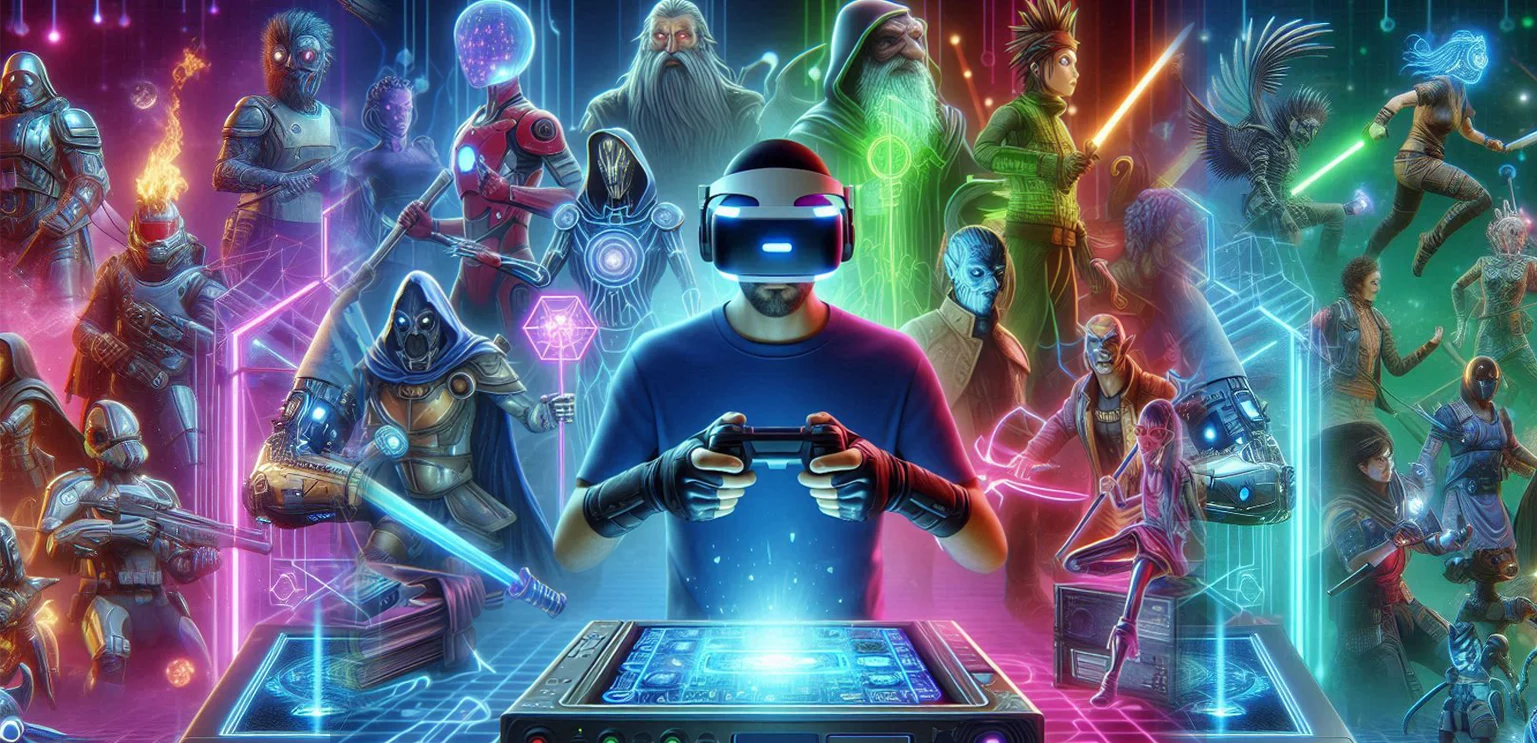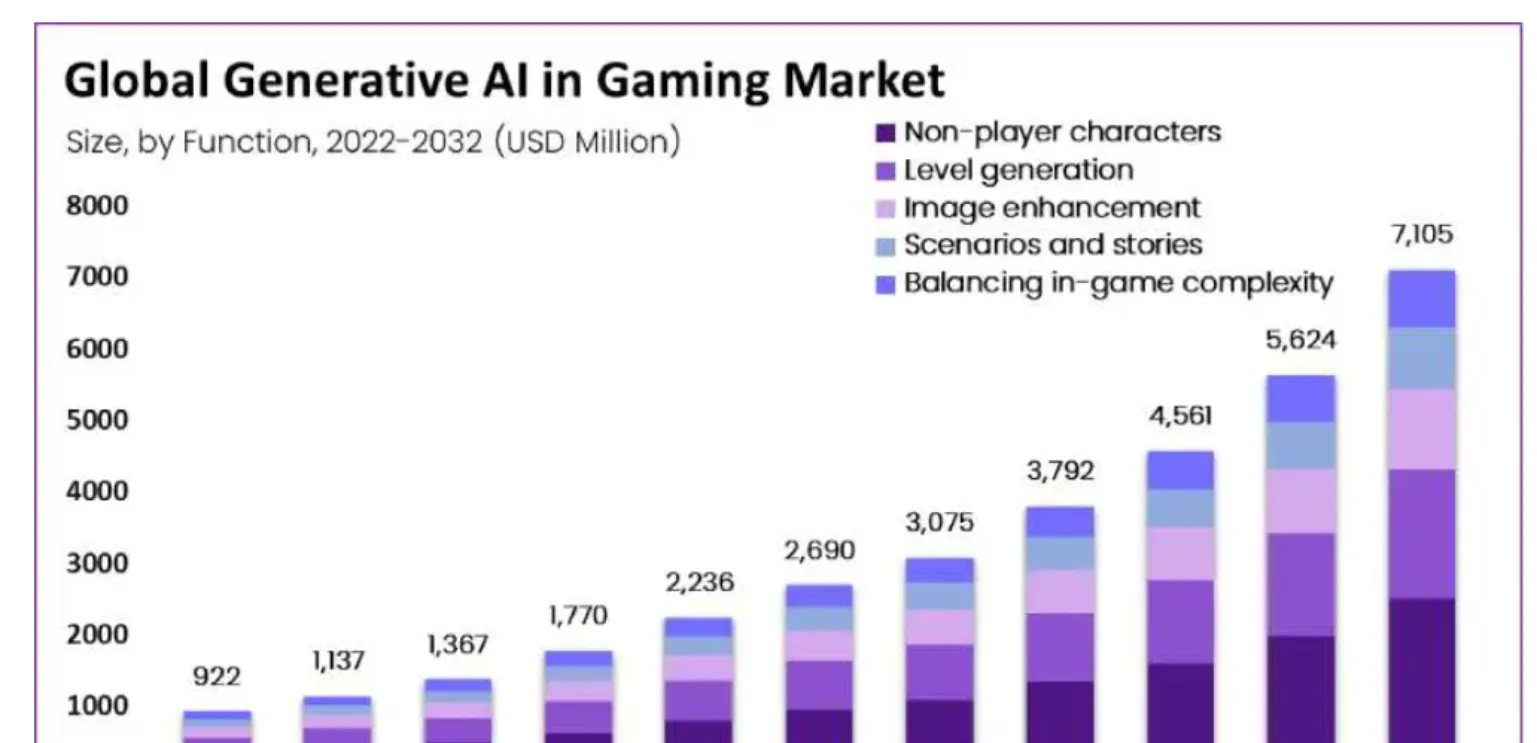Balancing AI Innovation with Ethics - Fairness, Transparency in Video Games
Developing games is a more challenging task than playing video games: no, I'm not sure, maybe I'm wrong or maybe I'm right, but AI-powered game development is such a typical task and you would learn that through this blog.

AI in video game development is one of the most talked-about topics, and the gaming industry has been using AI in game development for a long time. Various games use advanced AI to create open-world environments and more. With AI, game developers can enhance the behavior of non-playable characters, generate unique game content through procedural content generation, and provide personalized gameplay experiences for each player.
AI algorithms can help game publishers analyze players' gameplay patterns, preferences, and skill levels to customize their gaming experience. Moreover, the AI market is experiencing growth due to the rising demand for advanced gaming experiences and the increasing utilization of AI-powered virtual assistants and chatbots within games.
Artificial Intelligence is expected to grow in the gaming market in the coming years. The market size of AI in gaming is projected to grow from $1.5 billion in 2020 to $4.5 billion by 2025, at a compound annual growth rate (CAGR) of 25.0%, according to a report by MarketandMarkets.

However, while there are numerous benefits of AI in game development, there are also some drawbacks that developers need to be aware of, such as ethical implications. AI can potentially perpetuate biases and stereotypes and exclude certain groups of players. Therefore, game developers need to ensure that AI in their games is fair, diverse, and inclusive to benefit all gamers, not just specific groups.
So, let's dive into the discussion of AI fairness in the game development process to avoid the exclusiveness of the gameplay.
What is Fairness in Video Games, Why its needed?
Fairness is a crucial aspect of video games, enabling players to enjoy gameplay without discrimination in lives, powers, or features. It ensures consistency in game rules for every player, maintaining balanced difficulty and accessible gameplay across all skill levels. Fair games avoid bias toward specific players or groups, creating an inclusive environment that enhances engagement and player satisfaction.
If the game is not fair to an individual or group, it can lead to frustration, anger, and even loss of interest in the game. According to a study by SuperData, 64% of players stated that they would stop playing a game if they felt it was unfair. I stopped playing certain games when I found myself limited to live after an event in the gameplay.
The Role of AI in Balancing Fairness and Player Experience
Since its origin, balancing fairness and the player experience has been a key challenge in game development. AI is defining itself as an auxiliary tool to bridge the gap in-game balance. AI algorithms can adjust the game's difficulty level to provide a challenge that is appropriate for each player's skill level and can help to create NPC as well to add an exclusive layer of immersion in the gaming world.
Developers should remember they are creating games for humans, ensuring balance in gameplay to keep players engaged. Games should not be too easy or too difficult, as either extreme can cause frustration and reduce player retention.
While creating game effects and other resources with AI, developers should ensure that it should be creative enough to grab players' attention and should distinguish from duplicating the same content several times could exclude certain groups of players.
The Importance of Transparency in video games
Gamers should be a primary consideration throughout game development, including during AI integration and gameplay design decisions. Transparency in AI use helps players understand its impact on difficulty, NPC behavior, and game content generation. A survey by the Entertainment Software Association found 70% of players want to know how AI is used in games.
The importance of transparency in AI integration is to ensure that players are aware of how AI is impacting their gameplay experience. Without transparency, players may feel uncertain or unaware of how AI is affecting their gaming, leading to frustration or a loss of trust in the game. This is similar to how people are leaving social media platforms due to a lack of transparency in their practices. Therefore, game developers must prioritize transparency while integrating AI into video games to ensure a fair and engaging gaming experience for all players.
The Need for Diversity and Inclusion in AI Development
Diversity and inclusion are other factors to consider, just like the transparency of AI-powered game development. To achieve fairness in video games, game developers must work on diversity and inclusion to include all gamers in their games. AI can potentially perpetuate biases and exclude certain groups of players, which can negatively impact your game.
If AI is used to generate NPCs, it may unintentionally reinforce stereotypes based on race, gender, or other characteristics. Such biased NPCs can frustrate players and potentially cause them to stop playing the game.
Developers should train AI on diverse datasets and consult diversity experts to prevent perpetuating harmful biases in games. This approach ensures games remain inclusive and accessible for all players, regardless of background, abilities, or personal characteristics.
Wrapping up
It is an unbiased truth that AI has the potential to enhance video games in numerous ways. Still, it must be implemented with ethical considerations to offer fairness in the gameplay. So, game developers must balance the innovation of AI with the fairness, transparency, diversity, and inclusion that players expect in gameplay.
If you are looking for a reliable game development company, Gamix Labs is an excellent choice for your project. We provide comprehensive gaming solutions, and our portfolio showcases our expertise, helping you evaluate our development capabilities effectively.